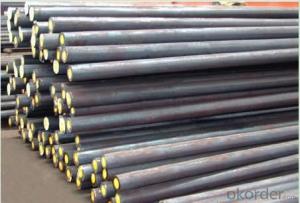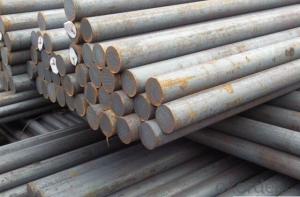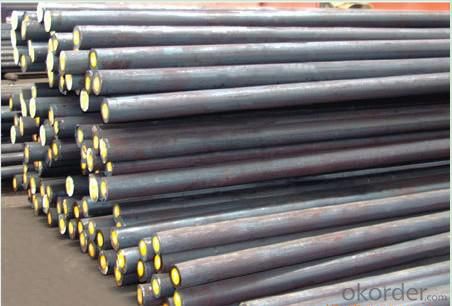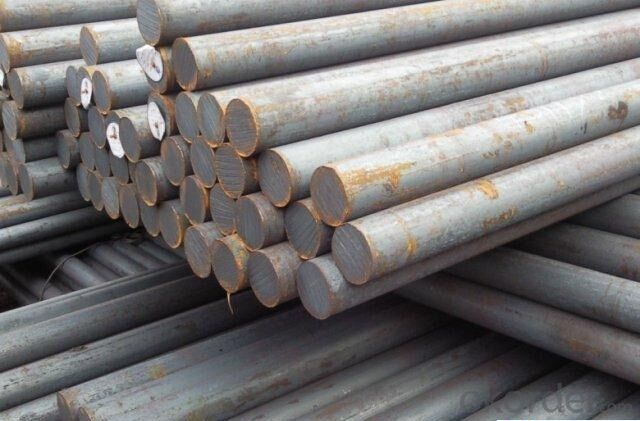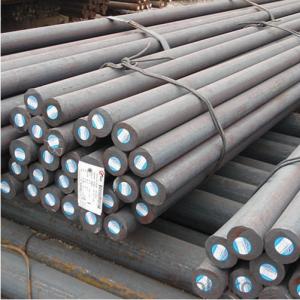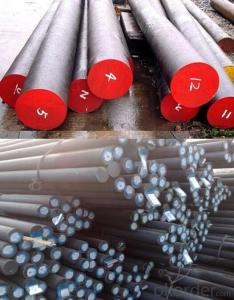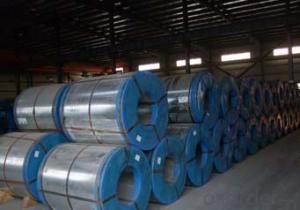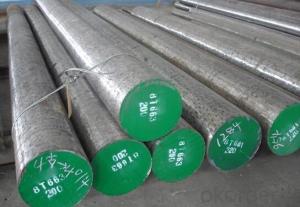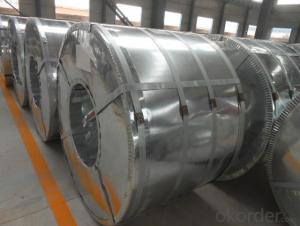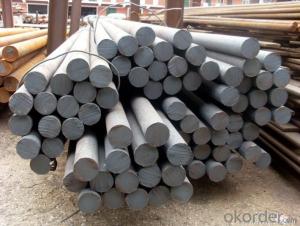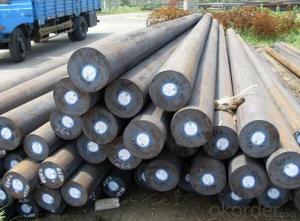Grade SAE 4340 Alloy Steel Price List Hot Rolled
- Loading Port:
- Tianjin
- Payment Terms:
- TT OR LC
- Min Order Qty:
- 3 m.t.
- Supply Capability:
- 10000 m.t./month
OKorder Service Pledge
OKorder Financial Service
You Might Also Like
Specification
Product Description:
Round bar | |||||||
Dia:16mm~700mm | Length:2m~6m | ||||||
Flat bar | |||||||
Thickness:20mm~500mm | Length:2m~12m | ||||||
Dimensions can be customized | |||||||
OKorder is offering Grade SAE 4340 carbon steel at great prices with worldwide shipping. Our supplier is a world-class manufacturer of steel, with our products utilized the world over. OKorder annually supplies products to European, North American and Asian markets. We provide quotations within 24 hours of receiving an inquiry and guarantee competitive prices.
Product Applications:
Grade SAE4340 carbon steels are ideal for structural applications and are widely used in the construction of buildings and bridges, and the manufacturing, petrochemical, and transportation industries.
Product Advantages:
OKorder's Grade SAE51200/ GCr15 / 100cr6 Bearing Steel are durable, strong, and resist corrosion.
Chemical Composition:
Comparative standard | Grade | C | Si | Mn | Cr | Mo | P | S | Ni |
GB | 40CrNiMoA | 0.36-0.44 | 0.10-0.350 | 0.45-0.70 | 1.10-1.40 | 0.20-0.35 | 0.03 | 0.02 | 1.30-1.7 |
AISI | 4337/4340 |
|
|
|
|
|
|
|
|
JIS | SNCM8 |
|
|
|
|
|
|
|
|
DIN | 34CrNiMo6/1.6582 | 0.34 | max 0.40 | 0.65 | 1.5 | 0.23 | 0.03 | 0.03 | 1.5 |
Packaging & Delivery of Carbon Steel
Standard seaworthy packing or as customer required
Delivery time:
Within 30 days after order is confirmed.
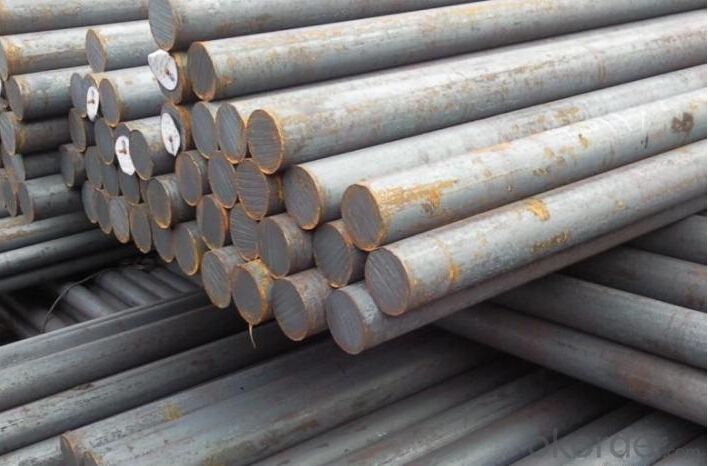
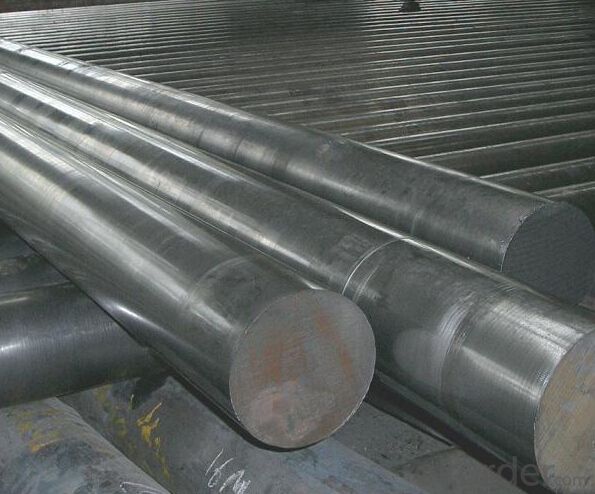
- Q: What are the key alloying elements used in special steel?
- The key alloying elements used in special steel are typically chromium, nickel, molybdenum, vanadium, and tungsten. These elements are added in varying proportions to enhance specific properties such as corrosion resistance, strength, hardness, and heat resistance, making special steel suitable for various applications in industries like aerospace, automotive, and construction.
- Q: How does special steel contribute to the mining equipment industry?
- Special steel plays a significant role in the mining equipment industry by providing superior strength, durability, and resistance to harsh operating conditions. It is used in the manufacturing of various mining equipment components such as drill bits, crusher parts, conveyor belts, and buckets, enhancing their performance and longevity. Additionally, special steel enables the development of more advanced and efficient mining machinery, leading to increased productivity and safety in the mining sector.
- Q: Is special steel suitable for manufacturing cutting tools?
- Cutting tools benefit greatly from the use of special steel, which is steel that has been specifically designed and processed to possess exceptional properties. This type of steel is known for its high hardness, toughness, and wear resistance. These characteristics make it an ideal choice for cutting tools, as they allow the tools to withstand the high stresses and pressures involved in cutting operations. The hardness of special steel ensures that cutting tools can maintain their sharpness for a longer period of time, resulting in improved cutting performance and efficiency. Furthermore, the toughness of special steel enables cutting tools to resist chipping, cracking, or breaking during use, enhancing their durability and longevity. In addition, the wear resistance of special steel ensures that cutting tools can endure the abrasive forces encountered during cutting operations without significant loss of material or deterioration. This helps to maintain the accuracy and precision of the cutting tools over time. Furthermore, special steel can be customized to meet specific requirements for different cutting applications. For instance, high-speed steel (HSS) is a type of special steel that is particularly suitable for cutting tools used in high-speed machining operations. HSS possesses excellent heat resistance and can retain its hardness even at elevated temperatures. In summary, special steel is highly suitable for manufacturing cutting tools due to its hardness, toughness, wear resistance, and ability to be tailored for specific cutting applications. These properties allow cutting tools to deliver optimal cutting performance, durability, and accuracy.
- Q: Can special steel be used in the renewable energy sector?
- Indeed, the renewable energy sector can effectively utilize special steel. This type of steel, also referred to as alloy steel, offers improved qualities such as exceptional strength, longevity, and resistance to corrosion, rendering it suitable for a diverse range of applications within renewable energy technologies. Within the realm of wind energy, special steel is employed for the production of wind turbine components. Wind turbine towers necessitate materials that are both robust and lightweight in order to withstand the dynamic loads and harsh environmental conditions they encounter. Special steel alloys, including high-strength low-alloy (HSLA) steel, provide the requisite strength-to-weight ratio, thereby ensuring the structural integrity of wind turbine towers. Furthermore, special steel proves advantageous in the field of solar energy. Concentrated solar power (CSP) plants rely on mirrors or lenses to concentrate sunlight, generating intense heat for the purpose of electricity generation. In the construction of these components, special steel alloys possessing high thermal conductivity and the ability to withstand high temperatures are employed. This ensures efficient energy capture and durability. In addition, special steel plays a crucial role in the manufacturing of equipment for hydroelectric power generation. Turbine components, such as blades, shafts, and runners, necessitate materials with exceptional strength and resistance to erosion and cavitation. Special steel alloys, including stainless steel and tool steel, exhibit these characteristics, guaranteeing the longevity and reliability of hydroelectric power systems. In summary, special steel finds widespread application within the renewable energy sector. Its qualities, such as high strength, durability, and resistance to corrosion, make it suitable for use in wind energy, solar energy, and hydroelectric power generation. Through the utilization of special steel, the renewable energy sector can enhance the performance, efficiency, and lifespan of various renewable energy technologies.
- Q: What is the role of special steel in the construction industry?
- Special steel plays a crucial role in the construction industry as it provides enhanced strength, durability, and resistance to corrosion. It is commonly used in the construction of high-rise buildings, bridges, and infrastructure projects, where structural integrity is crucial. Special steel's unique properties enable it to withstand extreme conditions and heavy loads, ensuring the safety and longevity of construction projects. Additionally, its versatility allows for the fabrication of various components, such as beams, columns, and reinforcement bars, making it an indispensable material in the construction industry.
- Q: What are the different tempering techniques used for special steel?
- There are several tempering techniques used for special steel, including air tempering, oil tempering, water tempering, and salt bath tempering. Each technique involves heating the steel to a specific temperature and then cooling it at a controlled rate to achieve the desired level of hardness and toughness.
- Q: Can special steel be used for making oil and gas industry components?
- Indeed, oil and gas industry components can be made using special steel. In the oil and gas industry, special steels like stainless steel and alloy steel are often preferred for their outstanding mechanical properties, resistance to corrosion, and ability to withstand high temperatures. These components endure harsh operating conditions, including corrosive environments, extreme temperatures, and high pressures. Special steels are specifically engineered to endure these conditions and retain their integrity and performance over time. By utilizing special steels, the oil and gas industry guarantees the dependability, longevity, and safety of vital components, including valves, pipes, fittings, and drilling equipment.
- Q: Is special steel recyclable?
- Yes, special steel is recyclable.
- Q: How is special steel used in the production of injection molds?
- Due to its unique properties, special steel is widely utilized in the manufacturing of injection molds, which play a vital role in the production of various plastic and metal items through the injection molding process. The excellent heat resistance of special steel is one of the main factors behind its preference in injection molds. When the molten material is injected into the mold at high pressure and temperature, special steel can endure these extreme temperatures without warping or losing its shape. This ensures the final product's accuracy and precision. Furthermore, special steel exhibits remarkable hardness and wear resistance. Given that injection molds are subjected to frequent use, wear and tear can occur, leading to dimensional inaccuracies and a decline in product quality. By employing special steel, which is specifically designed to resist wear, the lifespan of injection molds is extended, guaranteeing consistent and high-quality production. Moreover, special steel offers good machinability, enabling the precise fabrication of intricate and complex mold designs. This capability is crucial in the production of molds with intricate geometries and precise details, which is essential for manufacturing complex plastic or metal parts. Additionally, special steel provides a superior surface finish for the molded products. The use of special steel in the creation of injection molds results in smooth and polished surfaces, ensuring that the final products possess a high-quality finish. In conclusion, special steel is extensively utilized in the production of injection molds due to its exceptional heat resistance, hardness, wear resistance, machinability, and surface finish. These properties make it an ideal material for ensuring accurate and precise manufacturing of plastic and metal products through the injection molding process.
- Q: How does special steel contribute to the strength of structures?
- Special steel contributes to the strength of structures through its unique properties and composition. It is specifically engineered to have higher tensile strength, durability, and resistance to corrosion compared to regular steel. Its increased strength allows structures to withstand heavier loads, vibrations, and extreme weather conditions more effectively, ensuring their stability and longevity. Additionally, the use of special steel enables the construction of lighter and more streamlined structures, as thinner sections can be used without compromising their strength. Overall, special steel plays a vital role in enhancing the structural integrity and safety of various buildings, bridges, and infrastructure projects.
Send your message to us
Grade SAE 4340 Alloy Steel Price List Hot Rolled
- Loading Port:
- Tianjin
- Payment Terms:
- TT OR LC
- Min Order Qty:
- 3 m.t.
- Supply Capability:
- 10000 m.t./month
OKorder Service Pledge
OKorder Financial Service
Similar products
Hot products
Hot Searches
Related keywords
